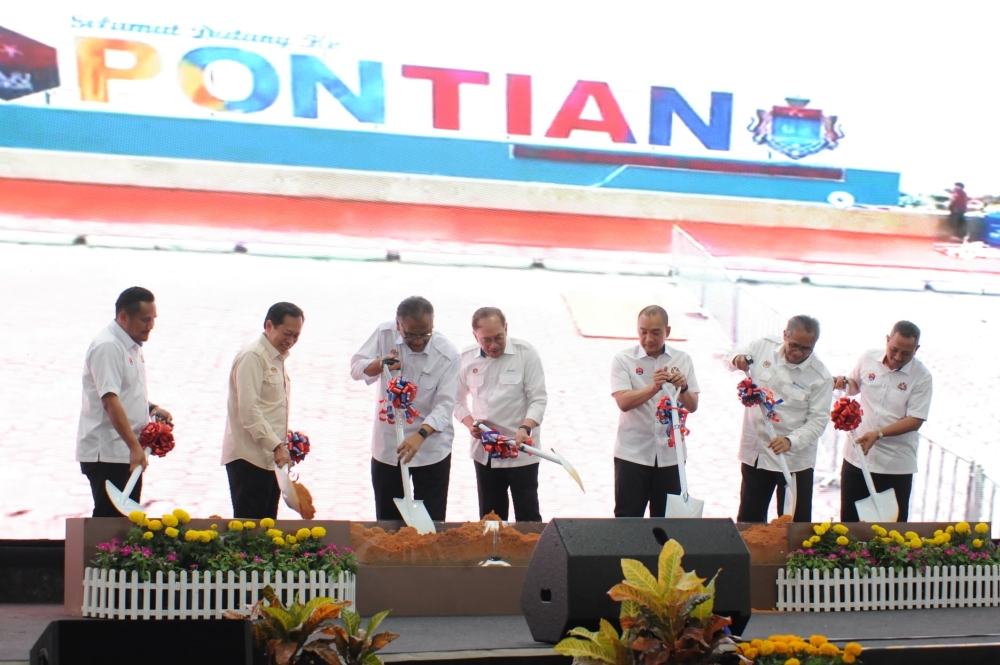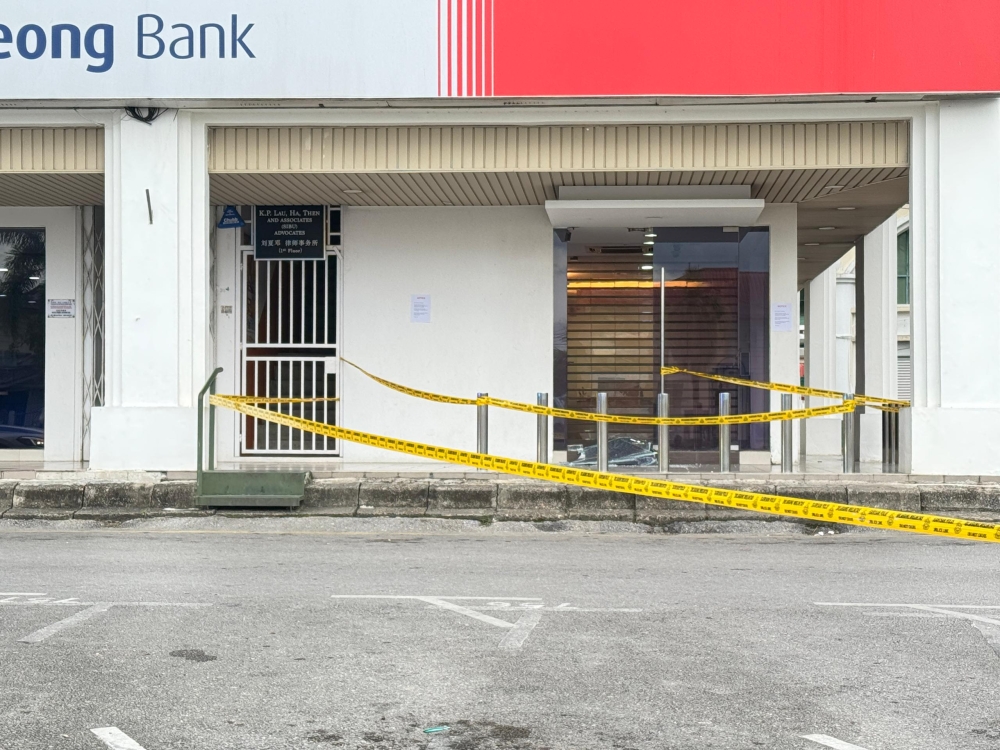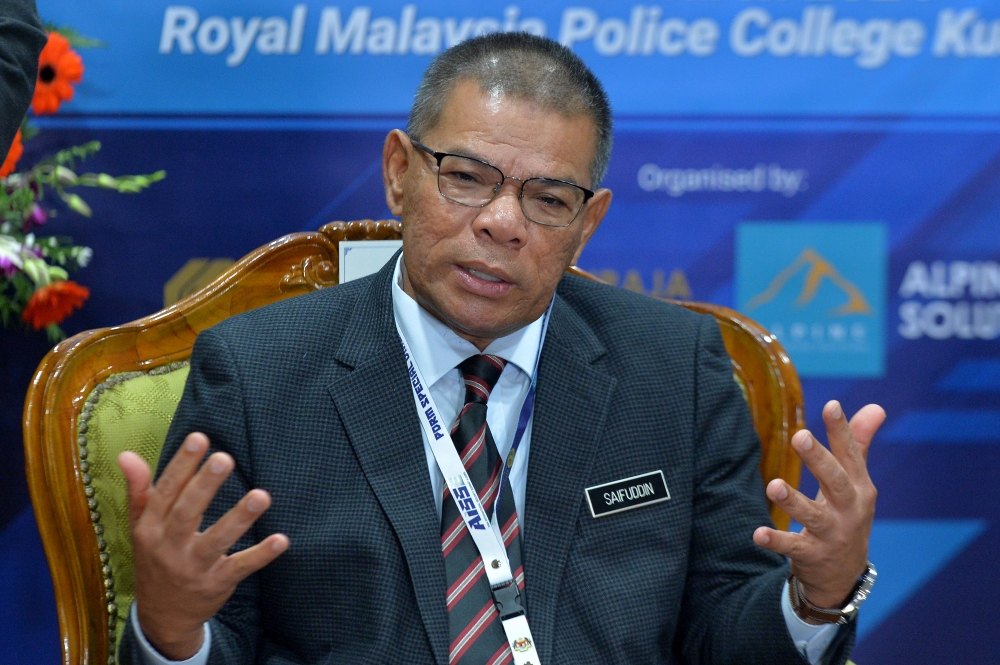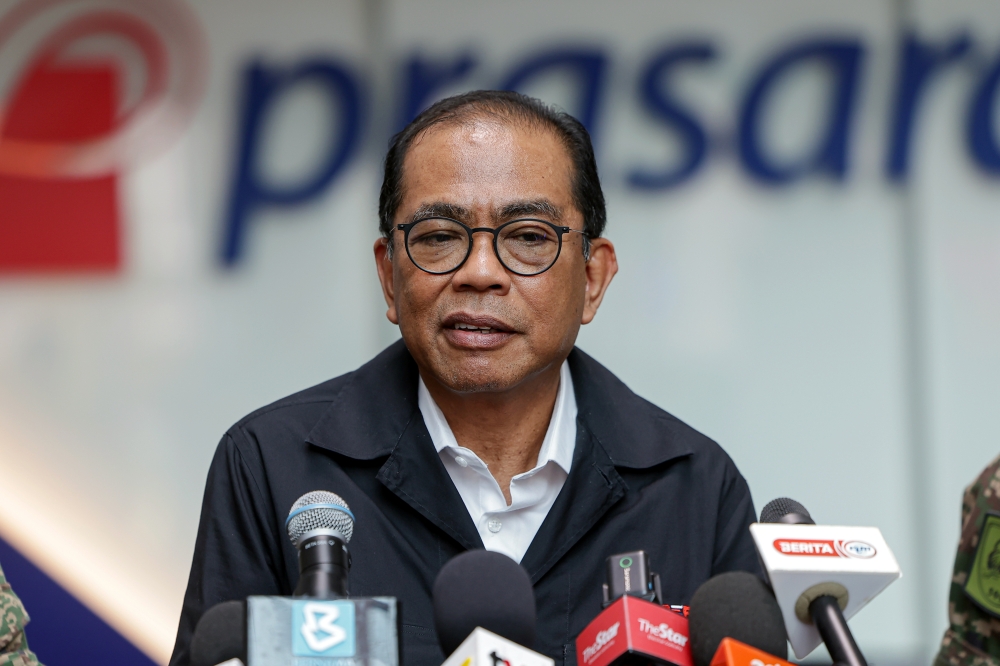KUALA LUMPUR, March 11 — In the face of opposition from civil societies and some MPs, Home Minister Datuk Seri Saifuddin Nasution Ismail today said that he is currently briefing federal lawmakers on the proposed amendments to Malaysia’s citizenship laws, and is confident of canvassing enough support for their passage through Parliament.
Article 15A of the Federal Constitution currently provides the government special powers to register persons under 21 years of age as citizens while Section 19B from part three of the Second Schedule obliges the government to confer citizenship automatically to foundlings.
However, the proposed amendments by the government would change the entitlement to a process of registration with an age limit, which is also subject to the approval of the home minister.
“I am presently engaged in a series of briefings to MPs, and I am confident that if I was given a chance to explain like this, like how I am explaining to reporters and reporters help write (the explanation), I feel, I am confident that this amendment can get the support it needs,” he told a press conference today, after officiating the PDRM Special Dialogue 2024 here.
When proposing the amendments last October, the government said it would address problems plaguing foreign-born children of Malaysian women with non-citizen husbands, who do not automatically gain citizenship, unlike the offspring of Malaysian men in similar circumstances.
Civil society groups have objected to the proposed amendments that would also affect children born out of wedlock to Malaysian men, stateless children adopted by Malaysian parents, foundlings or children who were abandoned (including those abandoned upon birth), and families with generations of stateless children born in Malaysia.
The amendment that would affect foundlings and abandoned children involves Section 19B, Part III of the Second Schedule which sought to amend from citizenship by “operation of law” to citizenship by “registration”.
The effect of this amendment would be that foundlings and abandoned children will no longer be entitled to automatic citizenship.
Several MPs, notably Pasir Gudang MP, Hassan Abdul Karim and Bukit Gelugor MP Ramkarpal Singh, have also voiced their concerns over the proposed amendments.
Saifuddin said that presently, there are also no cases of foundling babies requiring citizenships "on his table".
"There is no more pending case. Zero. On my table, there are no more cases requiring the enforcement of Section 19b for foundling babies. No more," he added.
Explaining the decision for the proposed legal amendment, Saifuddin said that one of the reasons was some parents allegedly resorting to illegal means to get their adopted children certified as citizens.
"There are syndicates issuing fake birth certificates. The child is not theirs. The child was found, they take and then deal with syndicates to get fake birth certificates.
"Cases like this are only detected when the child is 12 years old, as they need to get their MyKads. When they go and produce their birth certificates, their birth certificates are not in the system," he claimed, adding that this was one of the many situations faced by the Home Ministry.
Saifuddin characterised the citizenship issue he confronts as an "inherited legacy" from the previous administration.
He further noted that in the previous year, he, in his capacity, approved nearly 11,700 citizenship applications, with 85 per cent of them involving adopted children, foundling babies, and children born out of wedlock.
He also assured the public that the 14,000 cases awaiting approvals under Section 15A, will be sorted by the end of this year.
Before the press conference, Salahuddin also observed the signing of a Memorandum of Understanding (MoU) between the Malaysian Communications and Multimedia Commission (MCMC) and the Royal Malaysian Police College Kuala Lumpur, marking a strategic collaboration to enhance capabilities in addressing cyber crimes and narcotics.
The MoU was formalised between the Inspector-General of Police Tan Sri Razarudin Husain, and MCMC chairman, Tan Sri Mohamad Salim Fateh Din, witnessed by Saifuddin and Communications and Digital Minister Fahmi Fadzil.
Under the MoU, MCMC and the police will collaborate on capacity development initiatives, particularly in investigation and enforcement, including syllabus development. Additionally, both parties will designate experts from both sides as lecturers or speakers for training and research on enforcement and investigations. Furthermore, they will facilitate cross-posting and cross-functional placement for officers from both agencies.



















